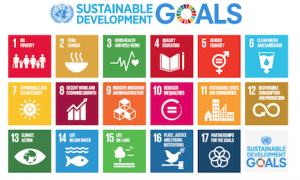Workshop on solutions for rural-urban linkage ends

A two-day workshop on “Development Strategy for urban Sustainability in Africa on the basis of Sustainable Development Goals (SDGs) Interlinkage Analysis (USiA) has ended in Accra.
Participants at the end of the workshop, called on policy makers to come up with a concrete policy in its developmental agenda for effective rural-urban linkages in Ghana.
The workshop deliberated on how to bridge the extreme disparities in Ghana’s urban and rural development paradigm for effective and sustainable rural-urban linkage.
It brought together participants from academia, research institutions, civil society organisations and the Ministries, Departments and Agencies.
It was organised by the Institute of Environment and Sanitation Studies, University of Ghana, Legon and the Integrated Research System for Sustainable Science (IR3S) of the University of Tokyo, Japan.
It formed part of the Development Strategy for Urban Sustainability in Africa, on the Basis of SDGs Interlinkage Analysis (USiA) Project, being undertaken by three African Universities in Ghana, Malawi and South Africa, to identifies concrete policy actions in their local contents to effectively enhance rural-urban linkages in their respective countries.
In Ghana, the Institute of Environment and Sanitation Studies (IESS) at the University of Ghana, Legon and the University of Development Studies, Tamale campus, are the collaborating institutions for the USiA project.
The project seeks to generate new policy proposal and project scheme for the sponsoring organization, Japan International Cooperation Agency (JICA) and regional financial institutions in Africa, such as the African Development Bank.
The one and half year project, is being organised by the United Nations University, in collaboration with the Integrated Research System for Sustainable Science, with funding from the Japan International Cooperation Agency (JICA).
The USiA is a policy research and based on the interlinkages analysis, such as synergy and trade-off across the SDGs, and seeks to propose policy recommendations on international cooperation, investment and solution prioritisation in order to implement UN SDGs 9 and 11.
The SDGs 9 is about building resilient infrastructure, promote inclusiveness and sustainable industrialisation and foster innovation while the SDGs 11 is making cities and human settlements inclusive, safe, resilient and sustainable in sub-Sahara Africa.
The Accra workshop sought to share the project aims and scope as well as preliminary research findings; collect information, data, experiences on urban-rural linkages in relation with SDGs 9 and 11, identify, elaborate and priories potential solutions as policy/projection direction for JICA and AfDB, and discuss the next steps and communication strategy.
Professor Chris Gordon, Principal Investigator, USiA Ghana and former Director of IESS, said the Accra workshop sought to prioritise the various solutions to identify the best options for action plan or policy briefs to guide the country’s development agenda.
He noted that over decades, Ghana’s development paradigm has skewed and that has resulted in extreme disparities between rural and urban areas and expressed the hope that by the end of the one and half years, they would come out with concrete solutions to guide policy makers and planners to achieve positive results.
He said similar workshops organised in Malawi and Cape Town, Malawi identified access of portable water as their development challenge, whilst Cape Town identified transportation.
He announced that the exercise would be repeated with other group of people to further enhance solutions to the country’s development problems.
Professor Kazuhiko Takeuchi, Director and Professor, IR3S, University of Tokyo, Japan, said the project is very important because it deals with issues of SDGs and how it could be applied to African countries.
The JICA is sponsoring the project to the tune of $200,000.
He said under the project, individual countries are to organise workshops for both public and private sectors to further develop detailed ideas on how to apply it in local contents to achieve the SDGs.
He said they hope to organise a side event during the forthcoming Tokyo International Conference on Africa’s Development (TICAD VII) in Yokohama next year in September, to strengthen Africa countries’ ties in the area of development with the Japanese government.
Source: GNA
